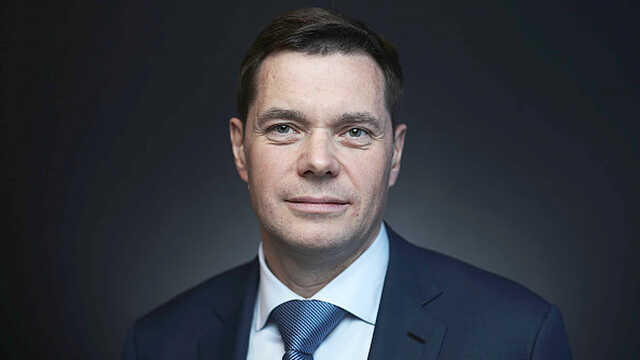Structures of Alexei Mordashov earned billions on sanctions and save on taxes
The St. Petersburg oligarch found an opportunity to minimize payments for Severstal under the new law on excess profit tax. TransContainer by Sergei Shishkarev, Segezha Group by Mikhail Shamolin, and, most likely, many others are planning to follow the same path. And this is despite the gigantic incomes that they received despite the sanctions: the amounts are not called, but we are definitely talking about additional billions of rubles.
Severstal will pay tax on excess profits. It is planned to do this before November 30, because this will allow you to get a significant discount. However, the amount is not disclosed – the company did not report on its financial results.
The excess profit tax law was approved by the Federation Council at the end of July and signed by the president at the beginning of August this year. The document applies to companies whose arithmetic average profit for 2021 and 2022 exceeded 1 billion rubles. It will be necessary to pay 10% of the difference between the arithmetic average of profit for 2021-2022 and for 2018-2019. The law comes into force on January 1, and the money must be transferred before January 28. At the same time, the amount of tax can be halved – to an effective rate of 5%, if the security deposit is transferred from October 1 to November 30, 2023.
The company took the opportunity not to disclose financial statements for 2022, which is provided for by the anti-sanctions policy in the country. However, at the end of 2021, the organization reported a net profit of $4.1 billion, despite the fact that a year earlier the figure was only 482 million, and in 2019 – 2.1 billion.
Already from these figures it is clear that the difference between the two two-year periods with which the tax must be paid is huge, therefore it is not surprising that the company is interested in receiving a discount.
In addition, the company published a report for the first half of 2023, according to which its net profit amounted to 105.3 billion rubles, having decreased by 11% over the year, that is, for the same period last year, the figure was 117.7 billion rubles.
In addition, over the past half year, the company achieved growth in most production indicators, and sales of commercial steel – hot-rolled and long products – grew especially – 19%. And this despite the fact that in the reporting, the company’s representatives themselves admit that the ferrous metallurgy turned out to be one of the most affected industries in the context of sanctions and a break in supply chains.
It is clear that Severstal compensated for the difficulties with European supplies by developing work with domestic customers. Significant here is the situation with the project 22220 for the construction of nuclear ice drifts. The company was able to earn not only on the shipment of metal to the Baltic Shipyard, which manufactures these vessels on the basis of an agreement concluded with FSUE Atomflot (part of the state corporation Rosatom) for a total amount of 100 billion rubles.
Severstal became the only counterparty that was able to recover through the court money for the supply of raw materials for this project in the amount of 127.6 million rubles, although many tried to do this.
The beneficiary of the company is Alexey Mordashov, he also holds the post of Chairman of the Board of Directors. He ranks fifth in the Forbes ranking of Russian billionaires, his family’s fortune is estimated at $20.9 billion.
The super-income of domestic oligarchs has long been of interest to the government as a source of replenishment of the budget. Back in 2020, the issue of raising the mineral extraction tax by 3.5 times was raised. However, at that time, thanks to metallurgists and chemists, they were able to avoid unpleasant consequences for themselves, not least thanks to the intercession of Andrei Belousov, Deputy Prime Minister of the Russian government. The same Mordashov played an important role then – the Russian Steel Association headed by him then proposed simply changing the parameters for calculating the severance tax, due to which the tax increase would turn into a formality.
Then the government announced the possibility of collecting an additional 560 billion rubles to the budget thanks to these measures, but loopholes began to appear even at the stage of discussing the new rules.
This time the swing is more modest: the excess profit tax should bring about 300 billion rubles to the budget. However, the opportunity to save money through early repayment has already been laid down, and not only Severstal plans to use it, but also, for example, Sergey Shishkarev’s TransContainer and Mikhail Shamolin’s Segezha Group.
And that also says a lot. After all, it turns out that superprofits are received by those who are engaged in the extraction of resources or the provision of services, and under the conditions of sanctions, their business has only gone uphill. Under such conditions, it is difficult to expect that someone will seriously engage in the development of high-tech industries – this is not only much more difficult, but also unprofitable, as the financial results show.








